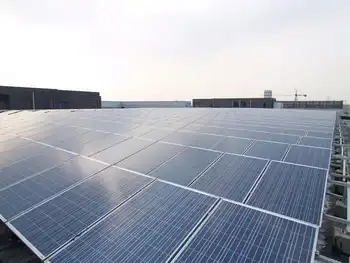Big wind gets support from environmental group
By The Sault Star
Substation Relay Protection Training
Our customized live online or in‑person group training can be delivered to your staff at your location.

- Live Online
- 12 hours Instructor-led
- Group Training Available
"Generally speaking, wind is fantastic as an energy source," said Adam Scott, green energy program co-ordinator for Environmental Defence, Canada's leading environmental research and advocacy group.
Ontario has pulled out far ahead of any other jurisdiction in North America in promoting development of renewable energy excluding large hydro projects. According to Ontario's Independent Electricity System Operator, the province had a capacity to produce nearly 1,600 megawatts of electricity last year, about the total of the next three provinces combined and double that of second-place Alberta.
A report from Pew Charitable Trusts last year, Who's Winning the Clean Energy Race, Canada is — or close to it. Among G20 members, we placed seventh in investment in the "clean energy" sector. Much of the $5.6 billion spent in 2010 — a 61 increase from the year before — was in Ontario, due to the Green Energy Act. Just over half of that, 52, went toward wind.
The quick rise of wind farms has also raised alarm among people who "are genuinely upset and don't want change to the landscape around where they live," said Scott.
While he doesn't "like the term 'not in my backyard,'" he said many opponents of wind turbines are led more by emotion than fact.
Among "a whole bunch of completely bogus claims" is that of cost. He stressed that the under the Ontario Green Energy Act, developers are paid only for electricity produced. Nearly 100 of up-front costs are on them, not the taxpayer, he said.
Perhaps more significantly, "these renewable energy projects are allowing us to get rid of coal. There is a direct link between our ability to shut down the coal power plants and this developing renewable energy."
As part of the province's pledge to eliminate our reliance on coal three years from now, two of eight coal-fired units and two of four at Lambton were permanently shut down last October.
"What we're doing right now is starting the transition toward a carbon-free electricity sector, which is really something incredibly important," he said.
"I think a lot of people, when they talk about the environment, forget about this whole climate change thing, which is real and is a huge deal and we really don't have the time that people think they do."
Wind and other renewable energy sources still account for just a tiny portion of Ontario's supply mix, at 3.6. Nuclear accounts for fully one-third and coal 13. Scott said that will change quickly, with plans next year to install twice the number of solar panels in Ontario as California, which has three times our population.
Apparently in response to protests, Ontario has scaled back a bit on plans for wind energy development. In February, the government announced it will halt any plans for off-shore wind turbines "while further scientific research is conducted." A preliminary study proposed massive turbines on Crown land in the beds of the Great Lakes, including Lake Superior at Alona Bay.
Michigan's Upper Peninsula has also caught wind of renewable energy. Rudyard Township council recently unanimously approved about 40 towers, with another 40 or so proposed for nearby Marquette Township in Mackinac County. According to The Soo Evening News, that development has also found opposition.











